Domestic Politics Archive
Free Newsletter
Kazakhstan’s constitutional council has rejected a referendum to extend its leader’s rule until 2020. President Nursultan Nazarbayev has been head of Central Asia’s largest economy for over 20 years. The 70-year-old leader has a month to appeal the decision. However, in his state of the union address last week, he said that should the vote be rejected, he would stand for election in 2012.
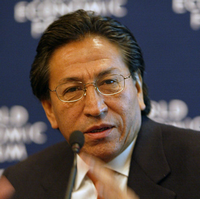
LIMA, Peru — As Peru approaches general elections on April 10, polls show that voters are leaning toward continuity, which might be expected for a country with one of the world’s fastest-growing economies. The leading contenders offer variations on the pro-business, open-market policies that have been the Peruvian status quo for two decades. The frontrunner, with 27 percent support in recent polls, is former President Alejandro Toledo, who governed from 2001-2006. A Stanford-educated economist, Toledo negotiated the country’s free-trade agreement with the United States and oversaw moderate economic growth, but endured frequent scandals and protests during his presidency. Born into […]
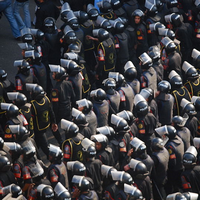
Over the weekend, Wikistrat — a Tel Aviv-based technology start-up for which I serve as chief analyst — gathered a group of Israeli and U.S. geostrategists, myself included, to take part in an online scenario-generating drill in response to the ongoing protests in Egypt. Our goal was to work up four feasible pathway trees along which events could develop — two favorable to the Egyptian people, two favorable to the Egyptian regime — and then present them online to interested parties for feedback and voting. The exercise was an attempt to harness the Web 2.0’s wisdom of the crowd for […]

The recent events in Tunisia have reverberated across the Middle East and North Africa, but they have found particular resonance in Egypt, where anger and frustration with President Hosni Mubarak’s government has escalated considerably over the past year. The violence, corruption and media censorship that accompanied last November’s parliamentary elections severely damaged the government’s credibility. Exacerbating this general frustration is the expectation that Mubarak’s son, Gamal, will succeed him and simply continue the status quo. In this week’s demonstrations, which saw Jan. 25 renamed Youm al-Ghadab, or Day of Wrath, protestors have indeed directed some of their anger at the […]

Negotiators from the P5+1 countries and Iran failed to reach a breakthrough in Istanbul last week at thelatest round of talks over Iran’s nuclear program. Nevertheless, it seems that, once again, Iranian President Mahmoud Ahmadinejad wants to keep negotiations alive with his seemingly never-ending bazaar-style haggling. The reason is simple: Ahmadinejad’s administration requires a positive outcome, at least on paper, so that the U.S., its European allies and the United Nations Security Council lift the debilitating economic sanctions targeting the Islamic Republic. So despite last week’s stalemate, the latest of many, Ahmadinejad is dangling the carrot of compromise to lure […]
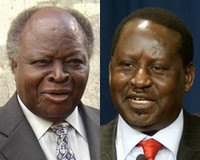
BOMET COUNTY, Kenya — Last month, when Luis Moreno-Ocampo, chief prosecutor for the International Criminal Court (ICC), requested summonses for six individuals on charges related to Kenya’s 2007-2008 post-election violence, a majority of Kenyans applauded. In a country with a deep-rooted culture of impunity, many citizens had given up on domestic justice to deal with those responsible for the violence. On the eve of Ocampo’s announcement, one poll found that 85 percent of Kenyans supported the ICC process, launched after Kenya’s government failed to establish a local tribunal for key perpetrators of the violence. Yet here in Kenya’s Rift Valley […]
The cache of documents known as the “Palestine Papers” have created much turmoil among Palestinians and subjected some of the best-known officials of the Palestinian Authority to a withering wind of criticism. The papers, 1,700 files of correspondence about the Israeli-Palestinian peace process, were reportedly leaked to the Arab-language Al Jazeera television network by unknown individuals. They have appeared in the Guardian and on Al Jazeera’s English-language Web site, where they were portrayed as evidence that Palestinian leaders betrayed their people by making huge concessions to Israel. But what the documents and the reaction to them really show is something […]
A trial involving the son of a minor official accused in a hit an run accident in central China has attracted national attention, according to this Al Jazeera report. The trial sparked public outrage and an internet campaign calling for justice when the accused son brushed off the incident, telling authorities that his father was an official in the government.
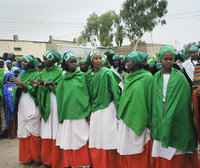
Nearly 20 years ago, Somaliland, a Florida-sized region of northeast Somalia once known as British Somaliland, declared its independence from Somalia. In the years since, Somaliland has emerged as a stable, democratic state that provides a measure of international security in a region overrun with pirates and transnational terrorists. Yet, no state or international body recognizes Somaliland’s independence. Instead, the international community is content with the fiction that Somalia remains a unified state. Denying Somaliland recognition will likely result in its eventual collapse and the expansion of the chaos, instability and international insecurity that characterizes Somalia. To prevent this eventuality, […]
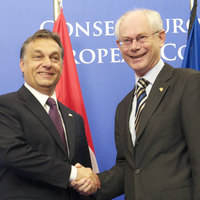
On Jan. 1, the same day Hungary began its six-month EU presidency, Hungarian Prime Minister Viktor Orban’s government introduced a law requiring “balanced” media coverage and instituting registration requirements for those disseminating information. The international furor over the new law threatens Hungary’s chances of making the most of its EU presidency, while offering a crumb of hope to a severely weakened opposition. France, Germany, Luxembourg, the U.K. and other EU members expressed concern over the media law, but Orban simply dismissed the criticism as misinformed and anti-Hungarian. He had already angered the business community by imposing surtaxes on banks, telecoms […]
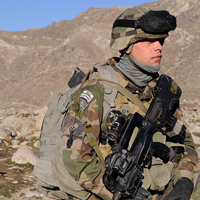
The attacks of Sept. 11 were a significant event: for the attacks in and of themselves; for what they brutally revealed in terms of international terrorism’s new ambitions; for their chain reactions, around the world and, in particular, in the countries that, whether due to solidarity or interest, entered the global war on terrorism alongside the United States. Among those nations, France immediately rallied to America’s side and, as a result, found itself, along with others, quickly dragged into a conflict that it had not sought: the Afghanistan War. Nine years since they arrived in Afghanistan, French troops are still […]
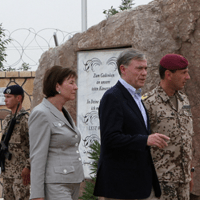
Last June, German President Horst Koehler, after visiting Afghanistan, called Germany’s participation in the war there vital to protecting long-term German interests. Koehler, whose role is primarily ceremonial, with little real political responsibility, told a German radio station that Germany’s export-driven economy and dependency on foreign trade meant that, “. . . in an emergency, military intervention is necessary to defend . . . trade routes, or prevent . . . regional instabilities that would certainly have negative effects on [Germany’s] trade, jobs and income.” He then urged Germans to “look at the reality” of Germany’s presence in Afghanistan and […]
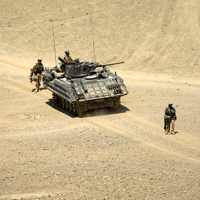
When the Netherlands and other European members of NATO invoked Article 5 of the North Atlantic Treaty after the attacks of Sept. 11, 2001, they almost certainly did not anticipate that, in doing so, they would find their armed forces engaged in a decade-long conflict in Afghanistan. The Article 5 declaration — holding that Sept. 11 was an attack on NATO’s collective security — was intended as a low-cost gesture of trans-Atlantic solidarity with the United States and the traumatized American people, rather than as an operational commitment to wage a protracted and frustrating conflict. But through NATO, European militaries […]
